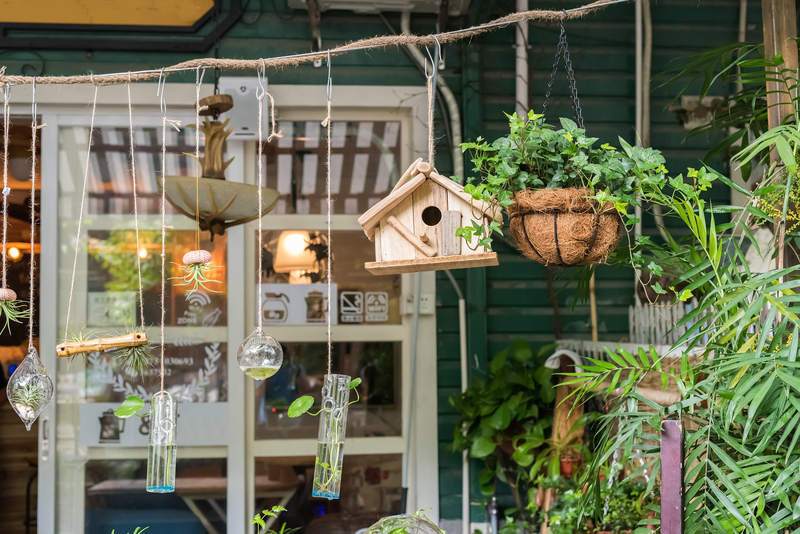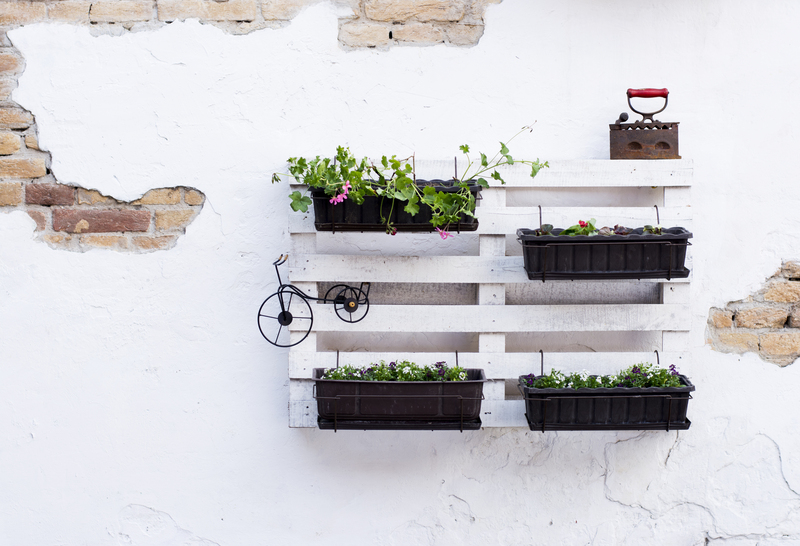Essential Actions to Reduce Waste in Your Living Space
Reducing waste in your home is not just an eco-friendly trend but an essential step towards living a sustainable and responsible life. By adopting simple yet effective actions, you can dramatically cut down on the waste generated in your daily activities. In this comprehensive article, we explore practical steps to reduce waste in your living space. Whether you live in a bustling apartment or a spacious house, the following eco-friendly habits and strategies will help you create a cleaner, healthier, and more sustainable home environment.
Why Is Waste Reduction Important at Home?
The average household generates significant amounts of waste each year, much of which ends up in overflowing landfills. Not only does this contribute to environmental degradation, but it also increases greenhouse gas emissions and consumes valuable resources. By minimizing waste in your living space, you help protect the environment, save money, and promote a healthier lifestyle for you and your loved ones.
Environmental Impact of Household Waste
- Landfill Overflow: Excess household waste fills up our landfills, causing pollution and health hazards.
- Resource Depletion: Wasteful habits accelerate resource extraction and increase the carbon footprint.
- Wildlife Threats: Improperly disposed-of waste endangers local wildlife and contaminates water sources.
Reducing waste at home is a vital step towards sustainability--and it begins with individual action.

1. Conduct a Home Waste Audit
Before you can reduce your household waste, you need to understand where it comes from. Conducting a waste audit helps identify the main sources and types of waste in your living space.
Steps to Perform a Waste Audit
- Collect Your Trash: Over one week, gather all garbage generated in your household.
- Sort and Analyze: Separate the waste into categories such as food scraps, packaging, plastics, paper, and hazardous materials.
- Identify Trends: Which type of waste is most common? Are there specific products you frequently dispose of?
With these insights, you can develop a focused plan to reduce household waste in your living space.
2. Embrace the Five R's of Waste Reduction
Adopting the Five R's--Refuse, Reduce, Reuse, Recycle, and Rot--is the backbone of any waste reduction strategy for your home.
- Refuse: Say no to unnecessary items, single-use plastics, and promotional freebies.
- Reduce: Cut down on consumption by choosing quality over quantity.
- Reuse: Find new purposes for items before discarding them.
- Recycle: Follow local guidelines to recycle paper, glass, metals, and certain plastics.
- Rot: Compost organic waste to create nutrient-rich soil for your garden.
Making the Five R's a Habit
Place reminders on your fridge or household bulletin board. Involve the whole family to make reducing waste at home a shared goal.
3. Minimize Food Waste in Your Kitchen
Food waste represents a large portion of residential waste streams. Tackling it is a crucial action to reduce waste in your living space.
Tips for Cutting Down Food Waste
- Plan Meals: Write a weekly menu and stick to a shopping list to avoid impulse buys.
- Store Food Properly: Use airtight containers, label leftovers with dates, and keep perishables visible in your fridge.
- Embrace Leftovers: Get creative with leftovers by making soups, stir-fries, or casseroles.
- Compost Food Scraps: Composting converts food waste into valuable soil for plants.
By following these steps, your kitchen can become a model of sustainable household waste management.
4. Choose Sustainable Products and Packaging
Switching to eco-friendly alternatives reduces the volume and toxicity of waste entering your home.
- Shop in Bulk: Buying in bulk minimizes packaging waste and usually saves money.
- Prefer Reusable Containers: Swap single-use plastics for reusable jars, tins, and bags.
- Select Products with Minimal Packaging: Avoid items wrapped in excessive or non-recyclable materials.
- Support Sustainable Brands: Patronize companies that use recycled materials and ethical practices.
These sustainable shopping habits help ensure your living space remains uncluttered and environmentally responsible.
5. Master the Art of Recycling
Proper recycling is among the most essential actions to reduce waste at home. Yet, many people still recycle incorrectly.
How to Improve Household Recycling
- Know What's Recyclable: Follow your local municipality's guidelines for curbside collection.
- Clean Items Before Recycling: Rinse food and drink containers before tossing them into the bin.
- Flatten Cardboard: Collapsing boxes saves space in the recycling bin.
- Avoid Wishcycling: Don't recycle items you're unsure about; improper items contaminate recycling streams.
By educating your household about proper recycling, you can significantly reduce waste in your home and ensure materials are managed responsibly.
6. Switch to Digital Alternatives
A paperless lifestyle is easier than ever and helps eliminate the clutter of junk mail, magazines, and unnecessary printouts.
- Go Paperless: Request digital statements and invoices from banks and utilities.
- Unsubscribe from Junk Mail: Register with services that remove your name from advertising lists.
- Embrace E-books and Digital Notes: Replace notebooks and magazines with digital alternatives on tablets or e-readers.
These actions minimize waste and help streamline your living space.
7. Reuse, Repurpose, and Upcycle Household Items
The key to reducing household waste lies in giving items a second life. Before throwing something away, consider if it can be reused or repurposed.
Creative Ways to Reuse Everyday Items
- Glass Jars: Use them for food storage, as plant pots, or as DIY lanterns.
- Old T-Shirts: Turn them into cleaning rags or reusable shopping bags.
- Furniture: Upcycle worn-out furniture with a fresh coat of paint or by repurposing its components.
- Gift Wrap: Reuse gift bags, ribbons, and packaging for future gifts or crafts.
Creative upcycling not only reduces waste at home but also adds unique charm to your living space.
8. Donate and Sell Items You No Longer Need
When you declutter responsibly, you prevent usable goods from ending up in landfills while helping others in need.
- Donate Goods: Give away clothing, books, or appliances to local charities and shelters.
- Host a Garage Sale: Sell unwanted items within your community to give them a second life.
- Use Online Marketplaces: Apps and websites like Facebook Marketplace, Craigslist, and eBay are great for finding new owners for your items.
Practicing these actions fosters a culture of sustainability and sharing in your home and community.
9. Reduce Water and Energy Waste
Waste reduction doesn't stop at physical items; conserving resources like water and electricity is equally vital for a sustainable home.
Simple Steps to Use Less Water and Energy
- Install Low-Flow Fixtures: Upgrade to efficient taps, showerheads, and toilets.
- Turn Off Unused Lights: Switch to LED bulbs and always turn off lights when leaving a room.
- Unplug Devices: Many electronics drain energy even when not in use--unplug chargers and devices when done.
- Monitor Consumption: Utility apps can show your real-time energy and water usage, helping you spot wasteful habits.

10. Make Eco-Friendly Cleaning Choices
Many household cleaning products come in disposable packaging and contain harmful chemicals. Making greener choices reduces both your waste and your environmental impact.
- DIY Cleaners: Use simple ingredients like vinegar, baking soda, and lemon for effective cleaning solutions.
- Bulk Buying: Purchase cleaning supplies in bulk containers to reduce packaging waste.
- Choose Concentrated Formulas: Concentrates reduce the need for multiple bottles and often use less plastic.
- Reusable Tools: Opt for washable cloths and mop heads instead of disposable wipes.
These small shifts create a low-waste home environment and protect your indoor air quality.
Conclusion: Making Waste Reduction a Way of Life
By taking these essential steps to reduce waste in your living space, you foster a culture of sustainability, save money, and inspire those around you. Remember, start small--each conscious action builds toward a larger impact. Get your household involved, set achievable goals, and celebrate your progress as you create a cleaner, greener, and more organized home.
Quick Recap: 10 Actions to Minimize Waste at Home
- Conduct a home waste audit
- Apply the Five R's: Refuse, Reduce, Reuse, Recycle, Rot
- Cut down on kitchen and food waste
- Choose products with minimal or recyclable packaging
- Recycle responsibly
- Go digital where possible
- Reuse and upcycle household goods
- Donate or sell unwanted items
- Conserve water and energy
- Switch to eco-friendly cleaning options
With commitment and creativity, anyone can reduce waste in their home and enjoy the many benefits of a sustainable lifestyle. Start today and watch your living space--and the planet--thrive!